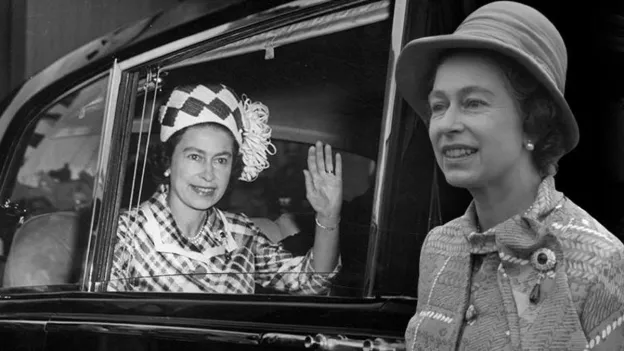
Hidden Spy Revealed: Secret Documents Expose Soviet Agent in Queen's Palace

london, england - Recently declassified MI5 documents revealed a shocking secret about a Soviet spy living under the roof of the palace for 10 years.
More than 2 years have passed since the death of Britain's late queen, Elizabeth II. However, many secrets of her approximately 71-year reign are still undisclosed. One of these, unveiled this week with the lifting of the confidentiality order, was the presence of a Soviet agent living under the roof for about a decade without the Queen's knowledge.
The agent in question was Anthony Blunt, the guardian of the Royal Picture Collection and an art historian in the Queen's entourage. Blunt, one of the most important figures in the Queen's circle, confessed in 1964 that he was a Soviet agent and had been in that role since the 1930s.
According to the documents released by MI5, Blunt admitted to spying for the Russians during World War II, but the truth was told to Queen Elizabeth almost 9 years later, in the early 1970s. Queen's reaction upon learning of Blunt's espionage was described as 'very calm and devoid of any astonishment,' just as always.
In fact, if everything had gone smoothly, the Queen might not have learned the truth for a much longer time. However, Blunt was severely ill with cancer and his days were numbered. Government officials feared that if Blunt died, the truth could not be concealed any longer. Journalists had already sniffed out the story, investigating Blunt's double life. With Blunt's death, the risk of facing defamation charges through publication would disappear, removing any barriers to the explosion of the news.
Suspicions about Blunt began 13 years earlier in 1951. At that time, Blunt's close friends, Guy Burgess and Donald Maclean, who were also Soviet agents, fled the country and sought asylum in the Soviet Union.
Blunt and Burgess, who had studied together at Cambridge University in the 1930s, had been close friends since then. The two, members of a group of spies known as the Cambridge Five, had worked for MI5 during World War II. After 1951, Blunt was interrogated by the UK Security Service 11 times but denied being a spy each time.
However, it was Michael Straight, an American, who gave a statement to the FBI that sealed Blunt's fate. Straight claimed that Blunt had convinced him to spy for Russia.
In April 1964, interrogation expert Arthur Martin confronted Blunt and promised not to prosecute him in exchange for his testimony.
Blunt's confession only came to light through these documents. In his statement, he not only revealed his wartime activities but also his post-war contacts with the Russian Intelligence Service. Blunt said he had encountered a Russian named 'Peter' for a reason he could not remember before Burgess and Maclean left the country and 'Peter' had encouraged him to escape, but he had refused.
Martin's report highlighted that Blunt seemed 'uncomfortable' speaking, 'long silences followed each question,' and during this time he seemed 'arguing with himself about what answer to give.'
Despite Blunt's significant role in Queen Elizabeth's entourage, few people were informed about his confession beyond MI5. The Home Secretary at the time was one of the few who had knowledge about Blunt. It was also reported to the Queen's private secretary that there were allegations against Blunt and MI5 intended to interrogate him.
It was also decided that only in the event of Blunt falling seriously ill would the Queen be formally informed, fearing that his past could become public in the event of his death.
In a document dated March 1973, the Queen's private secretary informed her of the revelations about Blunt. The document stated, 'She listened to all that was said very calmly and without any surprise: She remembered that there had been suspicions about Blunt years ago after the Burgess/Maclean incident.'
Miranda Carter, author of Blunt's biography, speculated to the BBC that someone informally told the Queen about the situation after 1965. Carter stated, 'I believe that officials wanted to remain behind the veil of plausible denial. The fact that the Queen reacted calmly and unsurprised makes me think she already knew about the situation.'
Blunt's past was finally exposed to the public in a House of Commons statement signed by Prime Minister Margaret Thatcher in 1979. Blunt, whose knighthood was revoked, passed away in 1983 at the age of 75.


Leave a comment